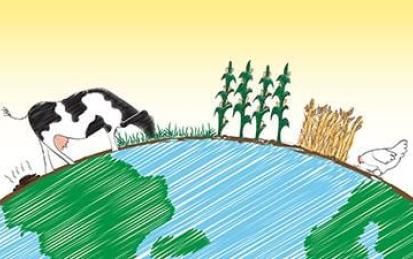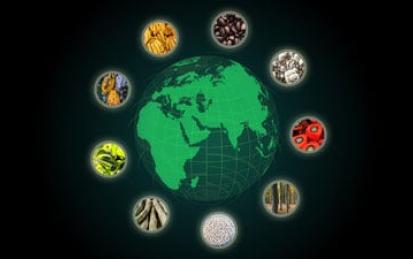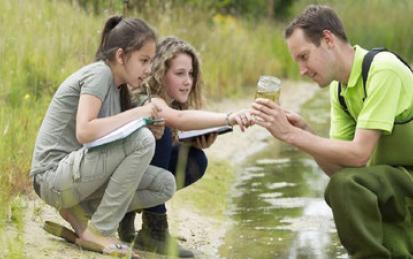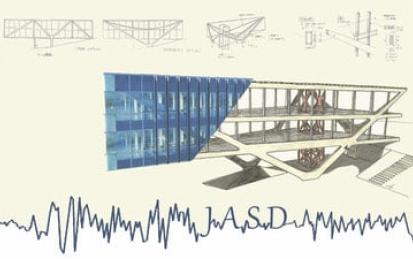

Our Courses

Strategic Communication for Sustainability Leaders
Communicating science effectively is a critical skill for anyone involved in environmental policy or sustainability. Learn how to integrate effective visualizations into compelling narratives to clearly explain complex ecosystem processes.
-
Course by

-
 Self Paced
Self Paced
-
 32
32
-
 English
English

Population Health: Alternative Payment Models
The way we currently pay our care providers lead to suboptimal outcomes and unnecessary spending. Consequently, we fail to maximize the value of our health care services. We need to change provider payment models in order to keep health care systems financial sustainability. Doing nothing is not an option. But the question is, how do we do it? During this course, we will discuss the rationale for payment reforms and dive into the key design elements of Alternative Payment Models (APMs) and how they change care provider incentives.
-
Course by

-
 Self Paced
Self Paced
-
 20 hours
20 hours
-
 English
English

Energy and Environment
This course deals with both renewable and non-renewable energy. By applying scientific principles and considering real-world examples, you will examine: 1. Non-renewable fossil fuels with a focus on coal, petroleum and natural gas and the benefits and consequences of using each. 2. Renewable fuels such as wind and solar and identify that even renewable “green” energy sources have impacts as well as benefits. 3. Biodiversity and global change, which are the integrating units of environmental science. Additionally, you will explore answers to the following questions: 1.
-
Course by

-
 Self Paced
Self Paced
-
 23 hours
23 hours
-
 English
English

Climate Change, Sustainability, and Global Public Health
The third course of the Impacts of the Environment on Global Public Health specialization will introduce you to two major environmental health challenges facing the world today. The first is climate change –the preeminent threat to public health today, and a threat that will impact every human and ecosystem on the planet. We will evaluate the causes and impacts of climate change, as well as policies and approaches that can be used to reduce the impacts of climate change on human health.
-
Course by

-
 Self Paced
Self Paced
-
 17 hours
17 hours
-
 English
English

Sustainability Analyst Fundamentals
The ASU Sustainability specialization introduces the role of a sustainability analyst, assesses sustainability challenges that face the planet and employers, and equips learners with the foundational skills needed to address these challenges.
-
Course by

-
 Self Paced
Self Paced
-
 English
English

Sustainable Consumption and Health
This course is an introductory and foundational course on sustainable consumption and health. In the first part of this course, we briefly review definitions of sustainability and the relationship between the three dimensions of sustainability and the UN-Environment Sustainable Environment Goals (SDGs), target and indicators. We then look at frameworks, indicators and footprint requirements to adequately measure sustainability, offering the opportunity to the participants to assess their own carbon and environmental footprint and make recommendation on how to reduce it.
-
Course by

-
 Self Paced
Self Paced
-
 14 hours
14 hours
-
 English
English

Capstone Chemistry and Technology for Sustainability
This Capstone project is the final part of the MicroMasters Program in Chemistry and Technology for Sustainability. Design a sustainable biobased process and evaluate the technological, societal and economic impact to finish the MicroMasters Program.
-
Course by

-
 Self Paced
Self Paced
-
 English
English

Sustainability in Architecture: An Interdisciplinary Introduction
This course introduces the basic elements and trendsthat define sustainability practices in Architecture today. Itfollows an interdisciplinary approach that includes performance assessment and urban policies.
-
Course by

-
 Self Paced
Self Paced
-
 English
English

Sustainable Supply Chain Planning, Sourcing, and Procurement
Learn the fundamental concepts of planning, sourcing, and procurement with applied sustainable techniques. The course will begin with content on how to integrate sustainability and circularity into planning and sourcing. The course demonstrates the importance of efficiency and long-term planning to ensure the minimization of waste and the maximization of productive Supply Chain flow.
Preparatory material - can be applied to ISCEA CSSCP - Certified Sustainable Supply Chain Professional - Certificate, now available on edX.
-
Course by

-
 Self Paced
Self Paced
-
 English
English

Sustainable Supply Chains and Circularity
Master both Sustainability and Supply Chain terms used throughout the Industry. Learn the foundational topics and innovations required for strategic and sustainable planning - a course that can lead to the future acquisition of the Globally Recognized, ISCEA CSSCP (Certified Sustainable Supply Chain) Professional Designation.
-
Course by

-
 Self Paced
Self Paced
-
 English
English

Supply Chain Management Tools and Techniques
Learn skills and tools that support supply chain operation, including Aggregate Planning, Sales Order Fulfillment, Lean, Sustainability and Team Dynamics - part of the ISCEA CSCA - Certified Supply Chain Analyst - Internationally Recognized Certificate
-
Course by

-
 Self Paced
Self Paced
-
 English
English

Sustainable Food Security: The value of systems thinking
Learn how to solve the 'Rubik's cube' of systems thinking and how it's applied to improve the environmental sustainability of food production systems!
-
Course by

-
 Self Paced
Self Paced
-
 35
35
-
 English
English

The Science Advisory Toolbox for Environmental Management
Develop your own science and management strategy while viewing the environment through a multicultural lens. Learn how science advocacy can drive effective environmental and sustainability decision-making.
-
Course by

-
 Self Paced
Self Paced
-
 21
21
-
 English
English

Worldviews - From Sustainability to Regeneration
This MOOC is the first part of an interconnected series of four MOOCs on Designing Resilient Regenerative Systems (DRRS) which bring together science, design and transformative praxis as a fluid, intervention-based and synergistic process for addressing complex challenges. This is explored through extending our worldviews, reframing complexity, designing as nature, activating our minds through physical movement, and connecting with new communities of practice.
-
Course by

-
 Self Paced
Self Paced
-
 English
English

Sustainable Construction Management
Learn Sustainable Construction Management practices, and how to implement a sustainable green project. Sustainability has become essential for private and public owners who want to incorporate the economic, social, and environmental aspects of their project to improve the triple bottom line.
-
Course by

-
 Self Paced
Self Paced
-
 15
15
-
 English
English

Built environment sustainability assessment
The course introduces the basic elements and trends for performing a through built environment assessment and develops the tools for urban sustainability policy impact analysis.
-
Course by

-
 Self Paced
Self Paced
-
 11
11
-
 English
English

Sustainable Development: The Post-Capitalist Order
Sustainable development represents a shift from our current system of inequitable capitalism to one that prioritizes prosperity for all, while remaining conscious of its environmental impact and sustainability for future generations. Learn why sustainable development has been adopted by countries and multilateral organizations around the world, and how this approach is transforming the way we live, work, and govern our planet.
-
Course by

-
 Self Paced
Self Paced
-
 24
24
-
 English
English

Sustainable Trade
Critical interdisciplinary introduction on how to make international trade and global value chains more sustainable from the Global South to the Global North, with a focus on the contribution of voluntary sustainability standards.
-
Course by

-
 Self Paced
Self Paced
-
 21
21
-
 English
English

Lean Six Sigma Program and Project Management
Master and apply Lean Six Sigma Methodologies to the basics of Change Management and Sustainability to build Supply Chain. Learners will understand the steps in Project Management related to the Lean Six Sigma Supply Chain process, to reduce the risk of failure in six sigma projects. Gain an understanding of what “Lean” means in Six Sigma and how to drive sustainable process improvement.
A Lean Six Sigma Course within The ISCEA CLSSYB Program – Certified Lean Six Sigma Yellow Belt Certificate.
-
Course by

-
 Self Paced
Self Paced
-
 9
9
-
 English
English

Agri-Food Systems Analysis
This course will provide an introduction to critical skills for understanding and evaluating sustainability metrics in relation to Agri-Food systems.
-
Course by

-
 Self Paced
Self Paced
-
 120
120
-
 English
English

Agricultural Economic Modeling Tools
Learn how to utilize Agriculture Modeling tools to achieve economic and sustainability outcomes.
-
Course by

-
 Self Paced
Self Paced
-
 20
20
-
 English
English

Sustainable Urban Development
Learn why cities are key in resolving global urbanization and sustainability challenges and how you can engineer tomorrow’s cities today.
-
Course by

-
 Self Paced
Self Paced
-
 32
32
-
 English
English

Transformative Citizen Science for Sustainability
Go beyond citizen-gathered data. Learn to design projects that actively mobilise citizens, policy makers and scientists to improve human and ecological wellbeing. In this advanced course, world leading experts from Wageningen University & Research share key principles and practices for Transformative Citizen Science for Sustainability. Join us and develop your own ideas about citizen science.
-
Course by

-
 Self Paced
Self Paced
-
 English
English

Japanese Architecture and Structural Design
In this revised course, fundamental and modern approaches to Japanese structural design will be explained using historical overviews and Tokyo-Tech’s campus buildings as case studies. Learners will be able to interpret and apply seismic design concepts like energy-dissipating braced frames, spine frames, seismic retrofit, seismic isolation and seismic design of spatial structures.
-
Course by

-
 Self Paced
Self Paced
-
 English
English

Feeding a Hungry Planet: Agriculture, Nutrition and Sustainability
How do we create a healthy and sustainable diet for the growing world population?
-
Course by

-
 Self Paced
Self Paced
-
 English
English



